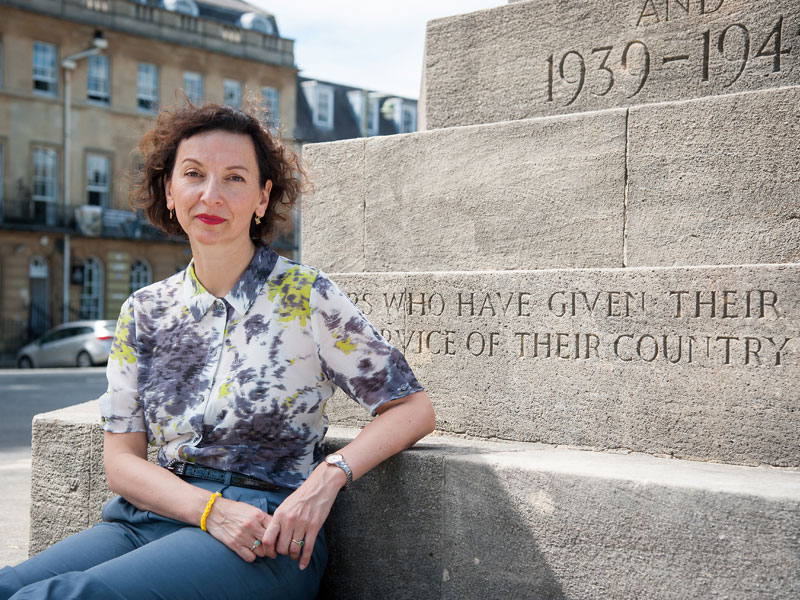The First World War and the birth of international development
This year marks a century since the beginning of the First World War. When we think of the legacy of this rather dark period in history, what comes to mind? We remember the fallen, revisit historic places, read war poetry. We don’t tend to think about international development.
But the core ideas for cooperation to fight crises and deprivation on a global scale actually started coming together after WWI, says Professor Patricia Clavin, Professor of International History. ‘The crises after the war meant that the new League of Nations, and later the United Nations, became organisations with a much broader remit than their founders intended. This is where the development agenda comes from, where modern ideas about food security and the treatment of refugees originated.’
 Photo Credit Professor Patricia Clavin by John Cairns
Photo Credit Professor Patricia Clavin by John Cairns
A connection we’ve lost sight of
‘War, Peace and Poverty in the 20th Century’, a five-year project that started in 2011, was made possible thanks to donor Mr Tim Sanderson (Modern History, University College, 1976) as part of his on-going support for the Faculty of History, and alongside his generosity towards other areas of the collegiate University. The project has already spawned an international conference, a course for history students (starting this year), and three research projects, one of which is run by Professor Clavin.
We take international bodies for granted and see them as very bureaucratic, but within them smaller powers and people can have a voice, in a way that they wouldn’t if we just had state authorities pushing their line.
Her project seeks to shine a light on the relationship between conflict and poverty. The specialist in history of international relations says that since the early 1990s there has been international recognition that security is a complex matter, with more to it than the protection of borders. As ‘conflict can arise as much within states as between states,’ the responsibility of a state towards its own population – their health, their income, their identity – is crucial to maintaining security. But this isn’t new thinking, Professor Clavin points out: ‘This idea is there in the First World War, where there was malnutrition, economies collapsing, people on the move, and the states involved had to manage all these elements.’
A burst of ‘humanitarian energy’
‘The other big lesson from WWI was that the world was interconnected, and there were limitations to what states alone could deliver,’ explains Professor Clavin. The ‘humanitarian energy’ that came out of WWI, in response to the harsh post-war conditions in central and eastern Europe, laid the ground for a more internationalist and cooperative worldview.
One of the big lessons from WWI was that the world was interconnected, and there were limitations to what states alone could deliver.
One of the people who espoused this worldview was Eglantyne Jebb, a social reformer and history graduate of Lady Margaret Hall. In the aftermath of WWI, Jebb ‘lobbied the League of Nations and international governments to send food into Austria because children were starving,’ says Professor Clavin. In 1919 she founded the Save the Children Fund with her sister Dorothy, to raise money to help children in countries hit by the consequences of the War. Her legacy lives on: today Save the Children is one of the largest international development organisations in the world.
Individuals can make a difference
So what do the consequences of WWI teach us? ‘That we need more international cooperation, not less,’ answers Professor Clavin. This cooperation is key to addressing power imbalances on the world stage. As Professor Clavin explains: ‘We take international bodies for granted and see them as very bureaucratic, but within them smaller powers and people can have a voice, in a way that they wouldn’t if we just had state authorities pushing their line.’
Support the Faculty of History